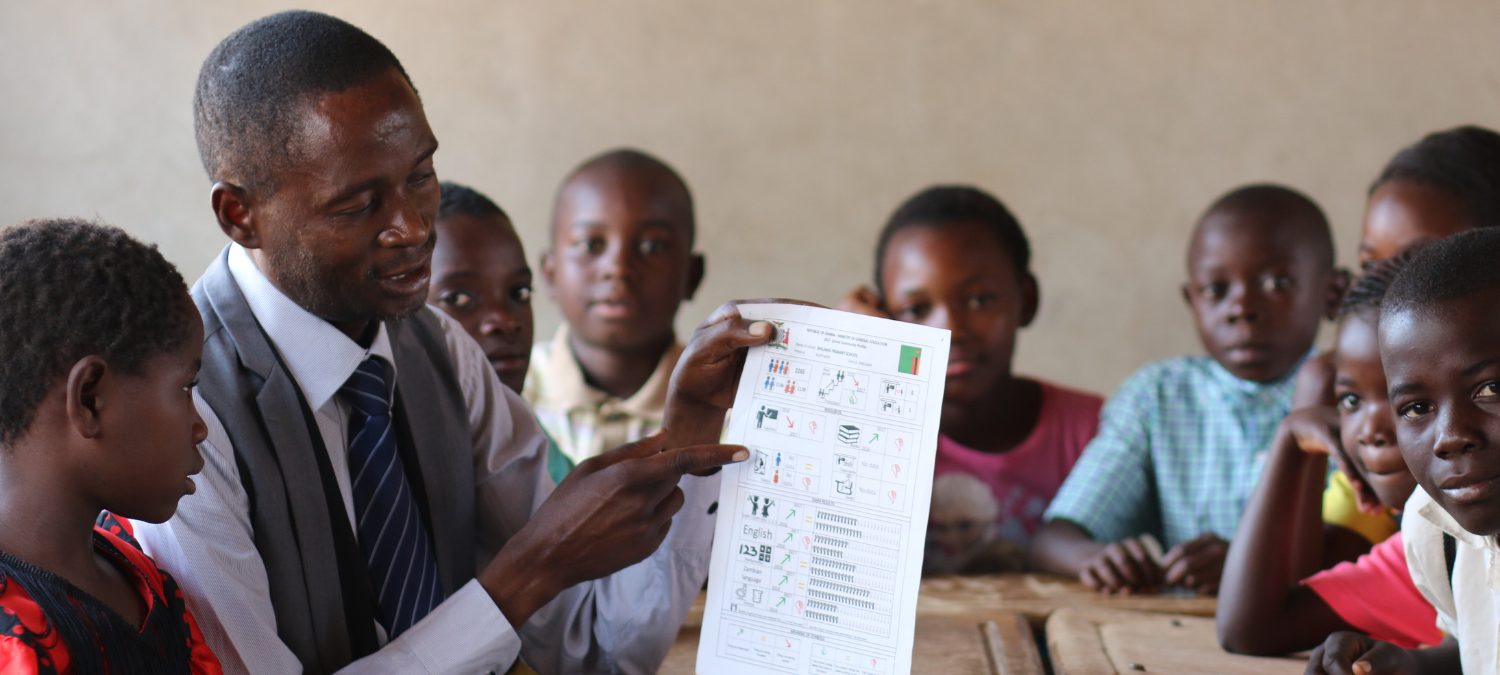In education, how data is used can make all the difference. UNICEF’s Data Must Speak initiative aims to maximize the use of existing education data so that it can drive policy decisions, inform citizens, and empower communities.
Why is the effective use of data critical?
262 million school-age children and youth are still out of school worldwide. Among those most excluded are the poorest girls and boys, those with disabilities, ethnic and linguistic minorities, and those living in remote or conflict-affected areas. In addition, there is a learning crisis: 387 million primary school-age children are not achieving minimum proficiency levels in reading and mathematics. Perhaps the most important way data can help reach, support and empower these children is by allowing us to understand who and where they are and what issues they are facing.
Education systems throughout the world already collect large amounts of data from their schools. Over the past years, data access and quality have improved. However, too often the data is used only to produce long reports and not much else.
When used effectively data can be a powerful tool to build stronger and more equitable education systems. Data can help decision-makers make informed choices to allocate resources more fairly. User-friendly information can also enable communities to take action and drive change in schools, as community-based monitoring is one of the most cost-effective practices to increase both access to school and learning outcomes1.
The Data Must Speak initiative
Data Must Speak (DMS) is an example of how UNICEF and its partners including IIEP Pôle de Dakar use existing data and information to change children’s lives. Launched in 2014 and co-funded by the Global Partnership for Education, the Hewlett Foundation and UNICEF’s Education Thematic Fund, which is mainly funded by Norway, DMS’ ultimate goals are to increase equity in access to education and improve learning outcomes. It does so by unlocking and maximizing the utility of education data that already exists.
To achieve its goals, DMS provides direct technical assistance for the development of contextualized data tools and processes. The DMS initiative aims to ensure that:
- Data drives policy decisions: Government education officials, at national and sub-national levels, analyze, compare and use data to inform resource allocation and education system management with an equity perspective.
- Communities are empowered: Communities, parents and students are informed of how their schools are resourced and are performing compared to other schools so that they can take action and pressure school managers into improving school performance and resource allocation.
- Research generates improved knowledge of what works: Rigorous evaluations are undertaken along the way to learn about what works and what doesn’t when making data speak.
DMS at work
DMS is currently being implemented in Chad, Madagascar, Namibia, Nepal, Niger, the Philippines, Togo, and Zambia.
System management with an equity perspective
In Nepal, DMS has supported the development of an equity index, which provides better information to districts about where schools are lagging. It is used for targeting resources in the districts that need the most support and aims to reduce Nepal’s education and learning inequalities. In the Philippines, DMS has supported the government in developing a hardship index to determine the level of special allowances to teachers working in the most challenging areas. This reform aims to support the deployment and retention of experienced teachers in the most disadvantaged schools, where they are most needed.
School profile cards and community empowerment
DMS is catalyzing district education offices and school-level community action by supporting the design, development, and production of district and school profile cards in numerous countries. DMS supports the training of relevant stakeholders (school directors, inspectors, teachers, and parents) on the use of these cards to develop school improvement plans. Over 8,900 school communities in Zambia now have information on how well their schools are resourced and performing in comparison to other schools. In Madagascar, 27,500 people have been trained on the use of school profile cards developed with support from DMS. The cards allow the communities to engage with school managers for developing school improvement plans, thus leading to increased learning outcomes. In Togo, more than 12,700 school and district profiles of pre-primary, primary and secondary schools are now distributed to schools across the country. In Chad and Niger, DMS is working with communities to help them engage in the education of their children and hold the schools accountable.
In Togo and Madagascar DMS is collaborating with IIEP Pôle de Dakar's programme on support for quality education management with joint missions taking place in 2018.
Knowledge generation
A formative evaluation of the global DMS initiative and an impact evaluation in the form of a randomized controlled trial of simplified school profile cards and related community training in Zambia were launched in 2018 and the final evaluation reports are expected late 2019.
In addition, DMS has prepared country case studies on the associations between community and parental participation and school performance in several countries (Burkina Faso, Cambodia, Côte d’Ivoire, Ethiopia, Niger, Togo) using EMIS data. The preliminary findings show a positive effect of community participation on school performance, either directly or through improved school environments.
-----------------------
1. International Commission on Financing Global Education Opportunity, The Learning Generation, Investing in Education for a Changing World, 2017
and International Initiative for Impact Evaluation (3ie), The impact of education programmes on learning and school participation in low- and middle-income countries, 2016


